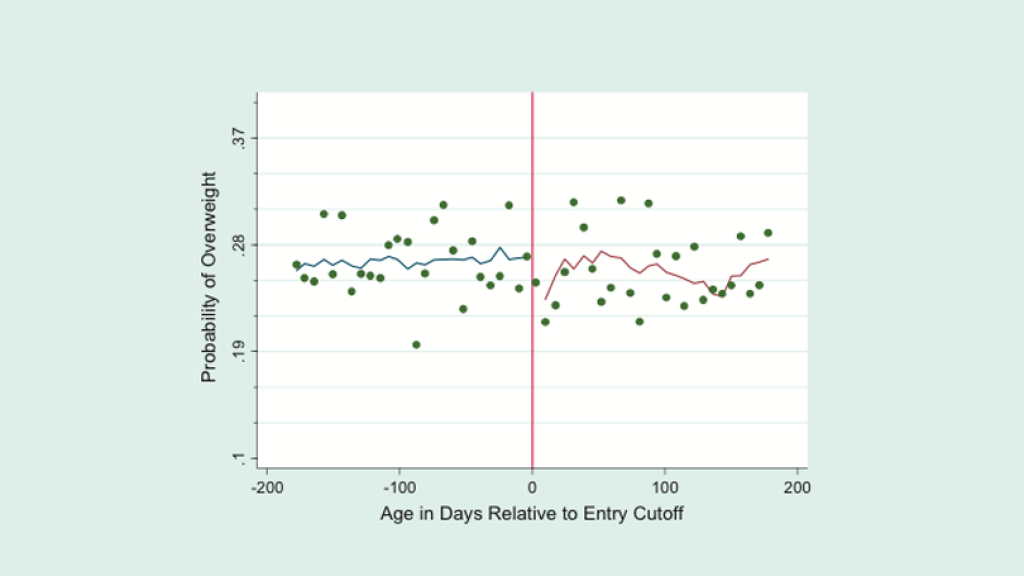Research Interests: Economics of obesity, social insurance, labor markets
Courses Taught: The Price Systems (Economics 01), Econometrics (Economics 20), Labor Economics (Economics 27)
Office: 316 Rockefeller Hall
Research Spotlight
“Is Being in School Better? The Impact of School on Children’s BMI When Starting Age is Endogenous” (with Kristin Butcher, Elizabeth Cascio and Diane Schanzenbach) Journal of Health Economics, Sept. 2011, vol. 30, no.5, pp. 977 - 986.
Background: Concerns about childhood obesity have spurred debate about school policies, particularly those that make junk food available to students. However, many studies do not address whether attending school per se is deleterious for one’s health. This paper investigates the impact of being in school versus not being in school on body weight and obesity.
Summary: The study uses data from the Early Childhood Longitudinal Study, Kindergarten Cohort of 1998 to compare weights of children of the same age who have completed first grade to those who have completed kindergarten only. Ordinary least square estimates from a regression of weight outcomes on grade level status controlling for age are positive, but are likely biased upward since parents may choose to hold back children who are small for their age, creating an endogeneity problem.
To avoid this bias, the study uses an instrumental variables regression, wherein actual school exposure is instrumented with predicted exposure based on where a child’s birthday falls relative to school specific age cutoffs. These estimates show a negative effect of school exposure on weight outcomes, though they are not significantly different from zero. This suggests that increased school exposure is not likely to, on net, increase bodyweight for the average student.
